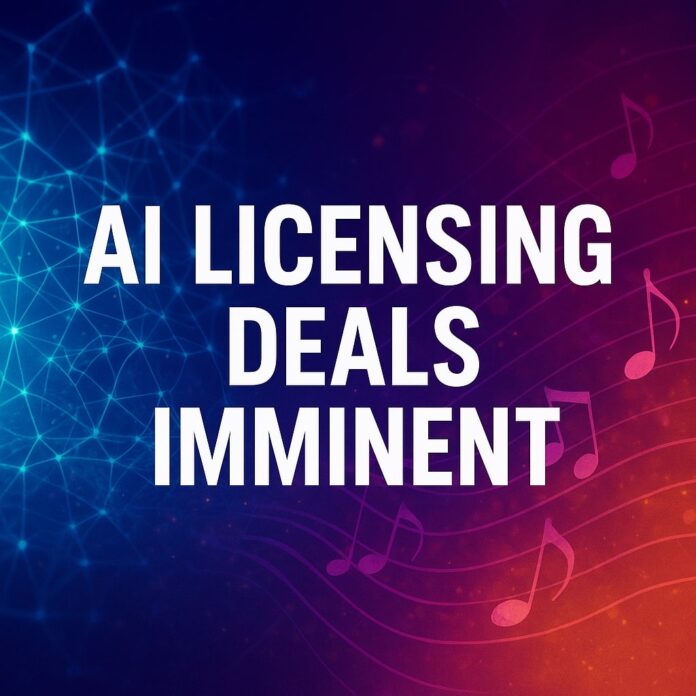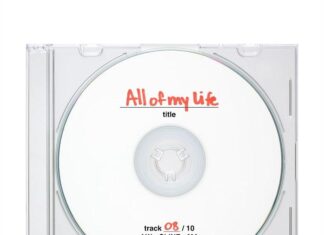
AI Licensing Deals Imminent: UMG and WMG Near Landmark Agreements with AI Music Platforms
The music industry is on the brink of a major shift. Universal Music Group (UMG) and Warner Music Group (WMG) are reportedly finalizing landmark AI licensing deals with major artificial intelligence music companies — including fast-growing startups like Suno and Udio, as well as tech giants such as Google and Spotify.
These agreements could reshape the financial future of AI-generated music, setting new standards for how technology companies compensate rights holders, from major labels to independent artists.
The Next Big Step: AI Music Licensing Meets the Streaming Model
Insiders suggest that these upcoming AI licensing deals could introduce a payment structure similar to music streaming, where micropayments per use would flow to labels and artists whenever AI tools generate music that references or mimics their catalog.
This marks a potential breakthrough in how the industry tackles the complex challenge of fair compensation in the era of generative AI. Just as Spotify and Apple Music transformed revenue models for digital music, AI licensing could define a new chapter — one where creativity and technology coexist under clearer, fairer rules.
Setting a Legal and Financial Precedent
If finalized, the UMG and WMG agreements will likely set a precedent for the entire global music industry. For years, artists and rights holders have debated how (or if) AI should be allowed to train on copyrighted works. These deals could pave the way for a standardized licensing framework that protects artists while enabling AI innovation.
- AI companies pay royalties when their models are trained on copyrighted songs.
- Labels and publishers gain transparency into how their catalogs are being used.
- Artists receive attribution and possible recurring income from AI usage.
What This Means for Indie Artists
For independent musicians, this new era presents both opportunities and challenges. On the one hand, improved attribution technology — similar to YouTube’s Content ID system — could make it possible to track when an artist’s music is used to train or inspire AI models. This opens the door to new royalty streams that didn’t exist before.
Do individual artists get to choose whether their music is used by AI?
The answer will depend largely on your music distributor’s policies. Some distributors may automatically opt artists in or out of AI licensing deals. That’s why it’s more important than ever for indie creators to:
- Review your distributor’s AI policy.
- Stay informed about opt-in or opt-out options.
- Understand how revenue sharing might work if your music contributes to AI training datasets.
The Bigger Picture: Balancing Innovation and Artist Rights
These imminent deals mark the start of a new balance between AI innovation and artistic integrity. As AI music creation tools become more sophisticated and accessible, ensuring that human creators are recognized and compensated remains essential to the health of the industry.
UMG and WMG’s negotiations with AI companies may soon define the rules of engagement for a generation of artists navigating a rapidly evolving digital landscape.
Final Takeaway
The AI licensing era is no longer a distant concept — it’s arriving now. As Universal Music Group, Warner Music Group, and major tech players like Google, Spotify, Suno, and Udio finalize their agreements, we’re witnessing the birth of a new economic model for creativity in the AI age.
For musicians, producers, and songwriters, the key takeaway is simple:
👉 Stay informed, stay involved, and make sure your music — and your rights — are protected in this new AI-powered world.
SEO Keywords: AI music licensing, Universal Music Group AI deal, Warner Music Group AI, Suno AI, Udio AI, AI-generated music, music industry AI, artist compensation AI, AI music royalties, AI copyright, Content ID AI, indie artist AI rights






















 🔥 Limited Time: Get 55% OFF All Plans - Ends in:
🔥 Limited Time: Get 55% OFF All Plans - Ends in: